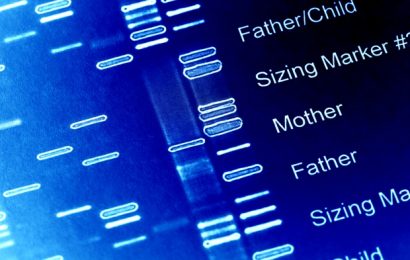NEW YORK (Reuters Health) – M5717, a new antimalarial being developed by Merck KGaA (Germany) in collaboration with the Medicines for Malaria Venture (MMV), has shown encouraging results in a first-in-human volunteer-infection study.
M5717 (formerly DDD107498) has a novel mechanism of action, targeting translational elongation factor 2 (eEF2), the protein-making machinery of the malaria parasite.
In preclinical studies, the compound has demonstrated activity against all stages of the malaria parasite’s lifecycle and thus has the potential for the compound to offer a single-dose cure, reduce transmission and protect vulnerable populations.
In the first-in-human trial, M5717 was well tolerated in healthy adults at doses that clear blood-stage Plasmodium falciparum, with a long half-life, supporting the potential for a single dose to have durable activity, the study team says in The Lancet Infectious Diseases.
In the two-part study, 66 men were enrolled in a single ascending-dose study testing doses of M5717 between 50 and 2,100 mg (vs. placebo) and 22 men were enrolled in the volunteer-infection study.
M5717-related adverse events were mild or moderate in severity and transient, with increased frequency observed at doses above 1,250 mg. At doses of 1,800 and 2,100 mg, transient oral hypoesthsia and blurred vision was reported – ending further tests of these doses.
In the volunteer-infection cohort, parasite clearance occurred in all patients and was characterized by an initial slow clearance lasting for about 35 to 55 hours, followed by a steep decline of blood-stage parasitemia.
Recurrent parasites were detected in three (50%) of six participants dosed with 150 mg and two (25%) of eight dosed with 400 mg. No recrudescence was seen in participants dosed at 800 mg.
Parasites of the five cases of recrudescence were genetically analyzed, and mutations were detected in four cases that are associated with resistance to M5717 – in two dosed with 150 mg and two dosed with 400 mg.
This finding highlights the importance of partnering M5717 with another antimalarial with a distinct mode of action, say Dr. Wilhelmina Bagchus of the Merck Institute for Pharmacometrics, in Lausanne, Switzerland and colleagues.
In a linked comment, Dr. Joerg Moehrle of MMV in Geneva, Switzerland, says these results are “encouraging” for further development of M5717.
Dr. Moehrle says it will be important to carefully assess the risk for resistance mutations when selecting a partner drug and “evaluate early in the development of the combination whether it will be possible to prevent the emergence of resistance.”
“As the initial parasite clearance of M5717 is slow, the partner drug should also exhibit a rapid elimination to ensure fast symptomatic and parasitological relief and avoid M5717-treated parasites replicating and acquiring mutations that could lead to the emergence of resistance,” he adds.
“To ensure that the selection of a suitable partner molecule to M5717 follows a data-driven process, Merck KGaA has joined a platform with other organizations that have antimalarial drug candidates in translational development, which is hosted by MMV,” Dr. Mohrle says.
“This platform allows sharing of information and data, the conduct of in-vitro and in-vivo combination experiments, and the identification of the most appropriate drug combinations for further investment. The first combinations emerging from this platform are expected to enter clinical studies in 2022,” he notes.
SOURCE: https://bit.ly/3k0d0W7 and https://bit.ly/3EEHVzq The Lancet Infectious Diseases, online October 26, 2021.
Source: Read Full Article


